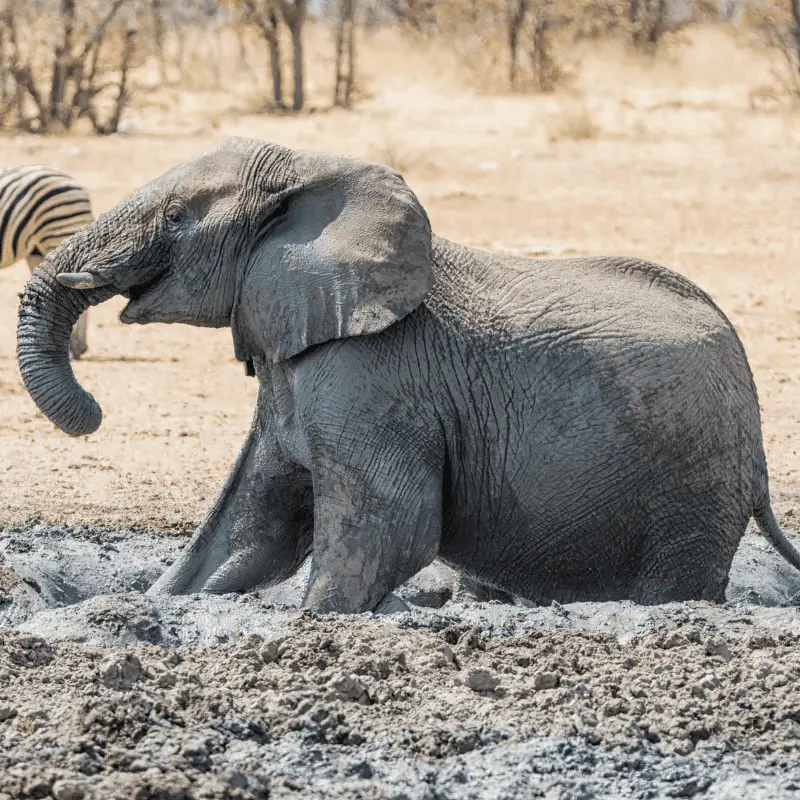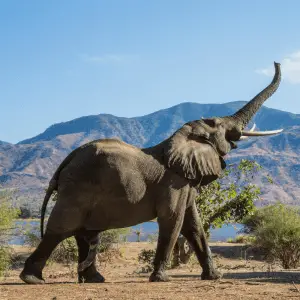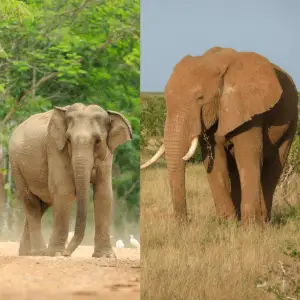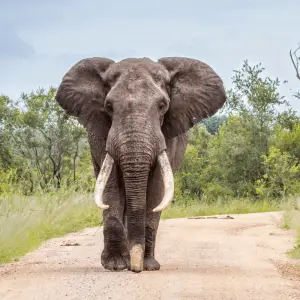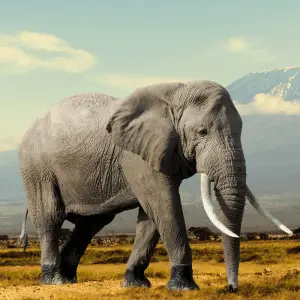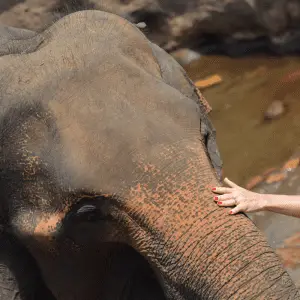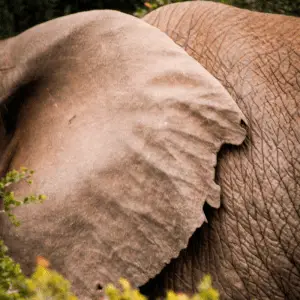Elephants like to roll around in the mud because it helps them cool off. It also protects their skin from insect bites and protects them against the sun’s rays. The elephants do not have sweat glands or much hair on their body, so they need to find other ways of staying cool.
- Keeps them cool
- Protection from insect bites
- Sun protection
Elephants Skin Facts
Even though you may think elephants have thick skin, this is far from the truth. An African elephant’s skin thickness is somewhere between 2 and 4 cm. The skin thickness is also not the same across their whole body. The skin of elephants’ backs is thinner than the other body parts.
Also, the skin of elephants is susceptible to the sun’s harsh rays. The skin of baby elephants is fragile, so they are even more sensitive to the sun’s rays.
If you watch an elephant herd closely, you will notice that the mother elephants always try to keep their babies under the shadow of themselves or a nearby tree.
They do that to make sure that their babies do not get sunburned. Because of their sensitive skin, the elephants wallow in mud and shower themselves with dirt.
This mud and dirt help them to create a protective barrier over their sensitive skin. It also helps the elephants to avoid insect bites.
Along with that, the elephant skin holds a massive weight. An adult elephant can weigh up to 6.3 tons. All that weight puts enormous pressure on the skin of these gentle giants.
In certain places, elephants’ skin requires extra support for excessive pressure. For example, the belly portion of the elephants requires additional fibroblastic support to keep the internal organs in their place.
Thanks to this tremendous pressure the elephants’ skin withstands, it is hazardous for veterinary professionals to perform abdominal surgery.
Once the abdomen of an elephant is cut open, the viscera will spill out of its body cavity. Once it happens, it isn’t straightforward for the professionals to stuff everything back in.
Due to the size and weight of an elephant, pregnancies are very complex in elephants. In fact, for pregnant elephants, veterinary professionals often create an opening under their anus to help the baby come out of the whim. However, even that does not always work successfully.
How much does an elephant weigh?
The weight of the African elephants is different from the Asian elephants as well. The African elephants weigh between 2.2 to 6.3 tons, during Asian elephants only 2 to 5.5 tons.
Recommended Read: Learn about elephant pregnancy
Elephants Do Not Have Sweat Glands
The skin function of humans is to regulate body temperature through sweating. As we have mentioned earlier, elephants do not have sweat glands on their skin. However, the absence of sweat glands makes it almost impossible for them to control their body temperature in this manner.
The most noticeable side effect of this absence of sweat glands is the dryness of the skin. If you touch an elephant’s skin, you will notice how dry it is. The only visible glands on the elephant skin are the temporal and mammary glands.
Skin Wrinkles
If you have seen an elephant up close, you must have noticed how dry its skin is. Cracks often form on an elephant’s skin because of bending stress during the epidermal growth period. Even though cracks often occur in non-living materials, they are sporadic affairs in biological beings. The intricate network of interconnected wrinkles on the elephants’ skin is a unique feature of these animals.
These tiny cracks help the elephants to retain 5 to 10 times more water on their skin. That allows these gigantic animals to regulate their body temperature more efficiently.
As long as elephants have easy access to water, wrinkled skin will always help them. However, during the summer months, when the environment gets drier, the cracked skin can cause significant problems for the elephants.
The mud baths help the elephants create a protective layer against solar radiation and parasites during this period. Thanks to these cracks, the elephant skin can retain the mud more efficiently than the smooth skin animals.
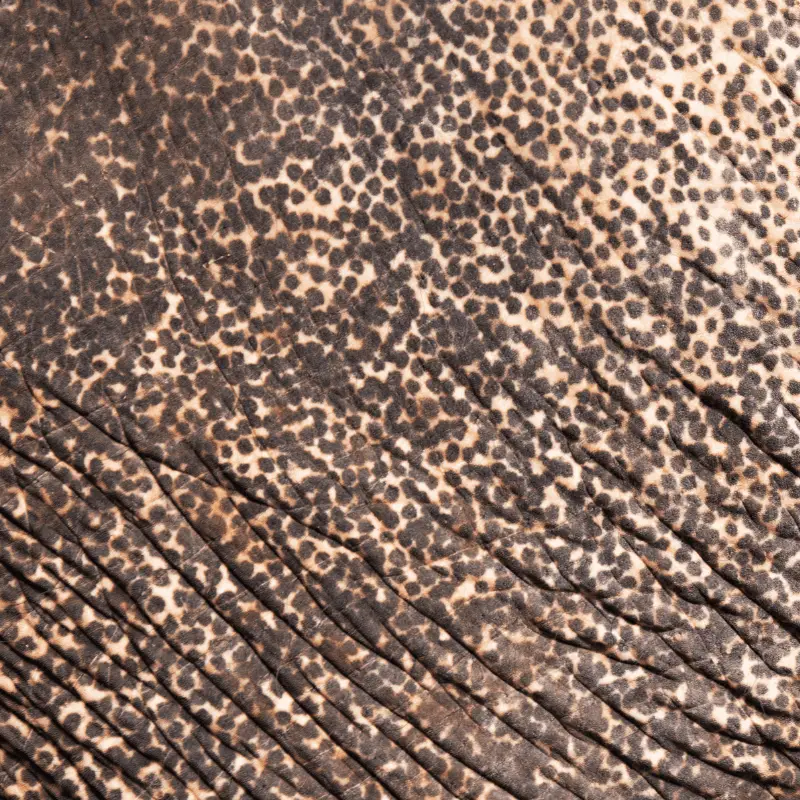
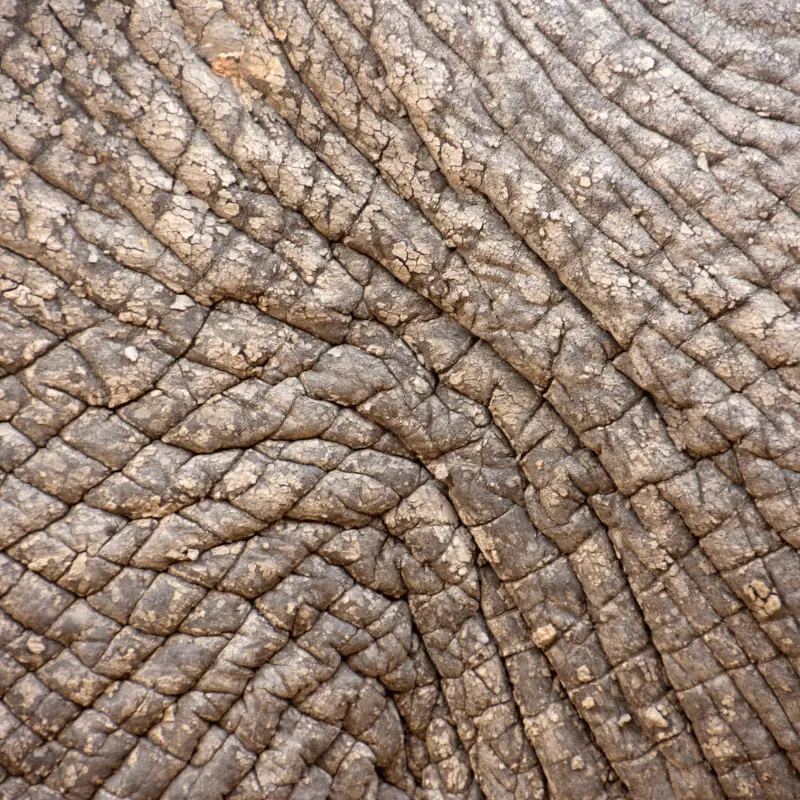
Baby elephants do not have these cracks on their skin. That is why baby elephants must be sprayed with mud and dirt more often than adults since the cracks on the elephant’s skin develop as the animal age.
Another surprising fact is that Asian elephants do not have as many cracks as African elephants. Cracks in the skin are mainly due to the African elephants living in a much warmer climate than the Asian elephants and needing more hydration.
Both male and female elephants have no differences in their skin condition.
Captive Elephants
All elephants love cleanliness, even if kept in a zoo or wild. That means the captive elephants need a robust shower schedule to keep their elephants happy, comfortable and clean.
A natural pool is an utmost requirement for a captive elephant; however, they will need daily showering if there is no pool nearby. This is because elephants need access to water regardless of whether they are captive or not.

